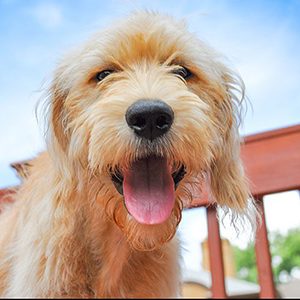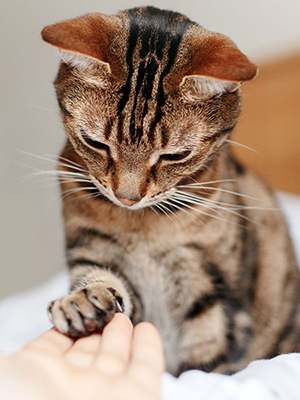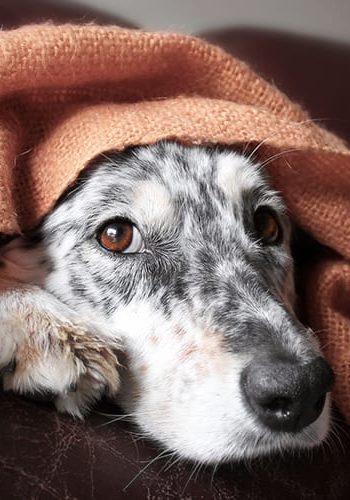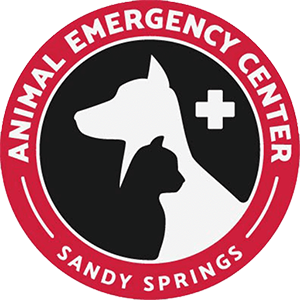Veterinary Anesthesia
For Cats and Dogs
Veterinary anesthesia has never been safer, but we understand wanting more information before your pet’s procedure.
Here at Animal Emergency Center of Sandy Springs, we utilize the latest technologies and equipment to help us to monitor your pet’s vital signs throughout their procedure, as well as the safest available general anesthesia to ensure your pet’s comfort and safety (especially when it comes to our high-risk or senior patients).
Why Does My Pet Need Anesthesia?
Common procedures that require your pet to undergo general anesthesia include:
- Dentistry
- Diagnostic Imaging
- Surgery
In some dog emergency situations, general anesthesia may also be necessary to provide immediate care. Anesthesia helps prevent pain for your pet as well as ensure their safety and our team’s. As a precursor to pet surgery or emergency procedures, we will run blood work to ensure your pet is healthy enough to undergo the procedure and general anesthesia.


How Does Anesthesia Work on My Pet?
Veterinary anesthesia prevents your pet from feeling pain or discomfort during medical procedures like surgery, certain screening and diagnostic tests, tissue sample removal, and dental work.
While under general anesthesia, a dedicated point person from our veterinary team will monitor your pet’s vitals before, during, and after the procedure to ensure they are safe and stable at all times.
How to Prepare My Pet for Veterinary Anesthesia
Before your pet’s surgery, your veterinarian will perform a nose-to-tail wellness exam to ensure your pet’s overall health and to avoid complications.
Your veterinarian will also want to get a thorough medical history from you - this is a great opportunity to ask any questions you might have.
Post-Op Care for My Pet
It takes approximately 24-48 hours for anesthesia to wear off in dogs and cats. Our team will monitor them for the first few hours post-op to ensure they’re stable and there are no complications.
Depending on the type of procedure and if your pet is doing well, they may be able to go home with you sameday. You’ll be given thorough discharge instructions to ensure a successful recovery. The most common anesthesia side effects for dogs and cats is sleepiness or light whining. If you’re worried or have questions post-op, please don’t hesitate to contact our team.


Is Veterinary Anesthesia Safe for My Pet?
Like with humans, general anesthesia does have its risks and side effects.
The four primary risk factors for anesthesia for dogs are:
- Size — toy breeds and overweight dogs are more prone to risks under general anesthesia.
- Age — puppies and senior dogs are at increased risk under general anesthesia.
- Breed — according to AAHA, Greyhound dogs may have prolonged recoveries after receiving certain anesthetics like barbiturates. Cavalier King Charles Spaniels are also predisposed to cardiac issues, and Brachycephalic (aka, “smush-nosed breeds,” like Pugs, Boston Terriers, and Bulldogs) are more prone to airway-related complications.
- Time of day — research has shown that most complications occur just hours after surgery, making this our critical window for monitoring recovery.
We take every precaution to ensure a safe procedure for your pet, but if you have additional questions about anesthesia side effects, we encourage you to talk to the veterinarian and/or anesthesiologist overseeing your pet’s procedure.
Reducing My Pet's Veterinary Anesthesia Risk
- Let your veterinarian know if your pet has ever had a previous reaction to general anesthesia or sedation
- Provide a thorough medical history, especially on medications
- Keep your pet healthy with an annual wellness exam and preventive care through your primary veterinarian
- Maintain a healthy weight for your pet’s species, breed, and age
- Follow your veterinarian’s post-op care to the letter
If you believe your pet is having an emergency, please contact us at (404) 252-7881. If you have additional questions about our emergency animal hospital’s policies, please visit our FAQs page.
